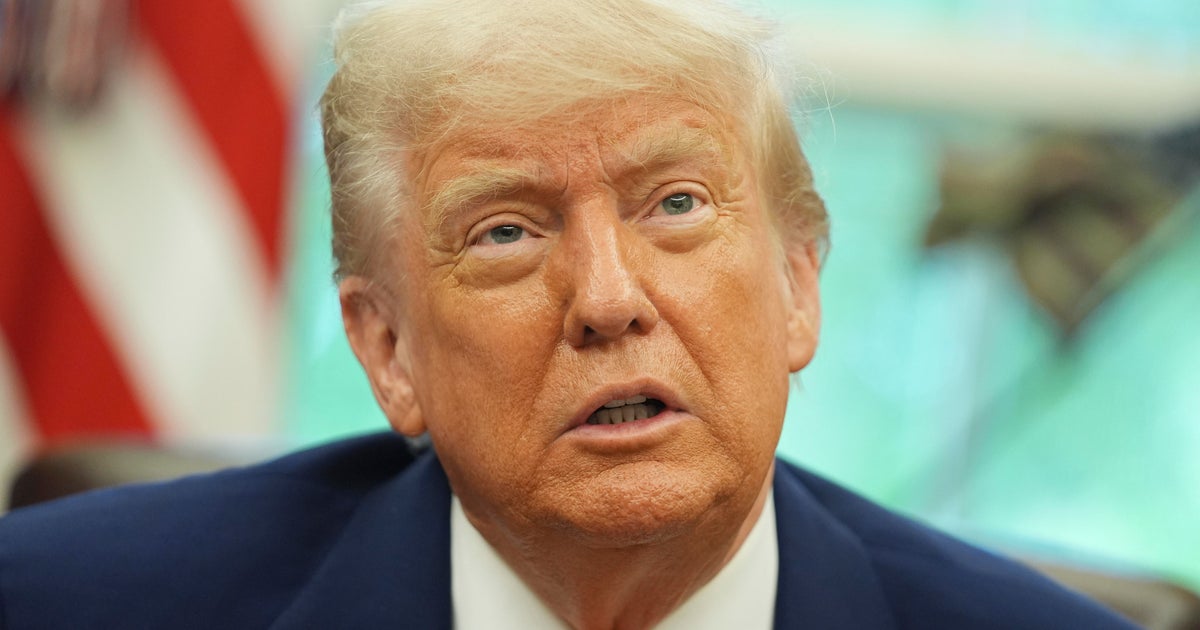
President Trump says he’ll sign an executive order on Monday that, if implemented, he says could bring down the costs of some medications. It is an attempt to revive a program he tried and failed to implement during his first term.
The order Mr. Trump is promising will direct the U.S. Department of Health and Human Services to tie what Medicare pays for medications administered in a doctor’s office to the lowest price paid by other countries.
“I will be instituting a MOST FAVORED NATION’S POLICY whereby the United States will pay the same price as the Nation that pays the lowest price anywhere in the World,” the president posted Sunday on his social media site, pledging to sign the order on Monday morning at the White House.
“Our Country will finally be treated fairly, and our citizens Healthcare Costs will be reduced by numbers never even thought of before,” Mr. Trump added.
The president last week teased a “very big announcement” in the Oval Office, and sources confirmed to CBS News on Friday it would be the so-called “most favored nation” plan to cut Medicare drug prices.
Mr. Trump’s Health and Human Services Secretary Robert F. Kennedy Jr. also hinted at the policy on Tuesday, pointing to higher prices in Europe for the blockbuster diabetes drug Ozempic.
“Right now, the big impediment is really price,” Kennedy said in an interview with Newsmax. “And we’re negotiating that with the drug companies and seeing if we can at least launch some pilot programs, or if we can get the price low enough, we can make it available at government cost to everybody.”
“If we made that so that Medicaid, Medicare paid for it, and that private insurance companies had to pay for it, we would double the cost of health insurance to most employers in this country. And that would really be destructive,” Kennedy said.
The proposal would likely only impact certain drugs covered by Medicare and given in an office — think infusions that treat cancer, and other injectables. Mr. Trump boasted that the plan would save the government “TRILLIONS OF DOLLARS,” but the real figure is unclear.
Medicare provides health insurance for roughly 70 million older Americans. Complaints about U.S. drug prices being notoriously high, even when compared with other large and wealthy countries, have long drawn the ire of lawmakers from both parties, but a lasting fix has never cleared Congress.
Under the planned order, the federal government would tie what it pays pharmaceutical companies for those drugs to the price paid by a group of other, economically advanced countries.
The proposal will likely face fierce opposition from the pharmaceutical industry.
It was a rule that Mr. Trump tried to adopt during his first term, but could never get through. He signed a similar executive order in the final weeks of his presidency, but a court order later blocked the rule from going into effect citing procedural issues during rulemaking, and under the Biden administration later declined to pursue it.
The pharmaceutical industry argued that Mr. Trump’s 2020 attempt would give foreign governments the “upper hand” in deciding the value of medicines in the U.S.. The industry has long argued that forcing lower prices will hurt profits, and ultimately affect innovation and its efforts to develop new medicines.
Court orders sought by the drug industry and others blocked the Centers for Medicare and Medicaid Services, or CMS, from implementing the proposal in Mr. Trump’s first term, saying that the government failed to go through the proper rulemaking steps to create and implement the policy.
The Biden administration abandoned the proposal in 2022, blaming court orders blocking the model and concerns raised by stakeholders, including fears that it could cut off some Medicare beneficiaries from drugs and strain providers.
Only drugs on Medicare Part B — the insurance for doctor’s office visits — are likely to be covered under the plan. Medicare beneficiaries are responsible for picking up some of the costs to get those medications during doctor’s visits, and for traditional Medicare enrollees, there is no annual out-of-pocket cap on what they pay.
A report by the Trump administration during its first term found that the U.S. spends twice as much as some other countries in covering those drugs. Medicare Part B drug spending topped $33 billion in 2021.
More common prescription drugs filled at a pharmacy would probably not be covered by the new order.
Mr. Trump came into his first term accusing pharmaceutical companies of “getting away with murder” and complaining that other countries whose governments set drug prices were taking advantage of Americans.
On Sunday, the president took aim at the industry again, writing that the “Pharmaceutical/Drug Companies would say, for years, that it was Research and Development Costs, and that all of these costs were, and would be, for no reason whatsoever, borne by the ‘suckers’ of America, ALONE.”
Referring to drug companies’ powerful lobbying efforts, he said that campaign contributions “can do wonders, but not with me, and not with the Republican Party.”
“We are going to do the right thing,” he wrote.
